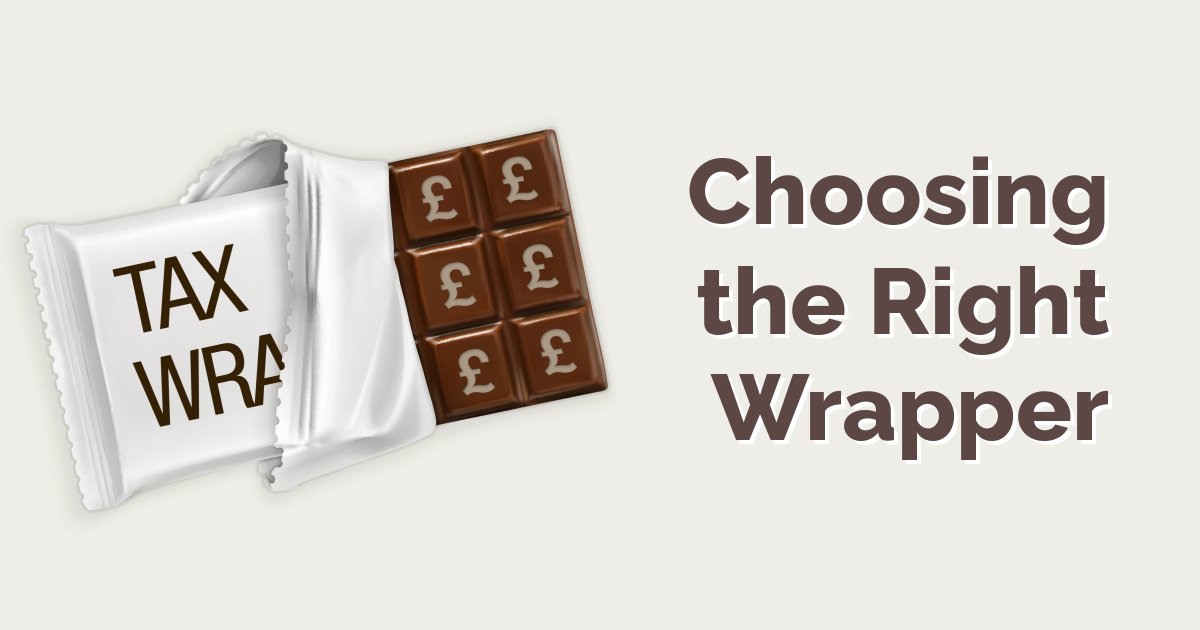Understanding Investments – The Importance of Tax Wrappers
Wednesday 22 January, 2025
Investment returns are primarily driven by the investment markets, asset allocation, and charges. Ensuring whoever is managing your investments is making sensible, well-researched choices and charging you a fair fee for doing so is job No. 1.
What many people don’t understand is that the tax wrapper you use to hold your investments will also affect the financial outcome, as tax can be a drag on performance. Therefore, it’s important that you hold your investments in the optimal tax wrapper for your personal circumstances.
ISAs and pensions are usually the first wrappers to consider, as any growth within these is capital gains tax and income tax-free. Pensions have more complex rules around contributions and withdrawals, but for the purposes of this article, the important thing to understand is that the underlying investment content of both ISAs and pensions is tax-free.
If a client has more money to invest, then there are three main alternative wrappers: General Investment Account, Onshore Bond, or Offshore Bond. What are the main features and considerations of each?
1. General Investment Account (GIA)
Returns are subject to income tax and capital gains tax. Dividends are taxed at 8.75%, and interest at 20% for basic rate taxpayers, but these increase to 33.75% and 40% for higher rate taxpayers, and 39.35% and 45% for additional rate taxpayers. Capital gains tax is now at 18% or 24% (basic rate and higher/additional rate), and the annual capital gains tax exemption is £3,000.
The increase in the rate of capital gains tax and the reduction in the annual exemption mean higher and additional rate taxpayers need to carefully consider whether a GIA is still the most suitable wrapper within which to hold their investments.
2. Onshore Investment Bond
The underlying investment growth is taxed as corporation tax, currently at 20%. Interest is taxed at 20%, and dividends are tax-free. Onshore Bonds are subject to the “chargeable event regime,” which means that on surrender or death, a tax event occurs calculating the total return on the bond, and any gains are subject to income tax. However, a 20% tax credit is applied. Depending on the bondholder’s tax position in the year of the event, there may be no further tax to pay, or there may be a further 20% or 25% tax to pay on any growth of the investments. These bonds also allow up to 5% per annum of capital withdrawals with no immediate tax charge for up to 20 years.
Higher rate taxpayers who will become basic rate taxpayers in retirement may be able to benefit from lower taxation on growth than a GIA, but the key is mitigating a tax charge on exit, which requires careful consideration.
3. Offshore Investment Bond
The underlying investment growth is tax-free, so these benefit from “gross roll-up.” However, they are also subject to the same “chargeable event regime” as Onshore Bonds, with the same tax rules on surrender or exit but without the 20% tax credit. Therefore, all returns are taxed at 20%, 40%, or 45%.
It is important that there is an exit plan for these bonds. It is possible to assign segments of the bond (this is also possible with Onshore Bonds), so we often see these being assigned to a family member who is a non- or basic rate taxpayer, such as a grandchild, to fund university fees or a deposit for a house.
Howard Goodship, Ringwood Independent Financial Adviser with Lonsdale Wealth Management, said:
“Tax rules are subject to change and are more detailed than a short article can cover. Therefore, it’s important you take personal financial advice before making any decisions on which wrapper works best for your circumstances”.
Howard is available at our Lonsdale Wealth Management Office in Ringwood: 5 Friday’s Court, Ringwood, BH24 1AB. Tel: 01425 208490.
The value of an investment and the income from it could go down as well as up. The return at the end of the investment period is not guaranteed, and you may get back less than you originally invested. The contents of this article are for information purposes only and do not constitute individual advice. The Financial Conduct Authority does not regulate cash-flow planning or tax advice.
Latest News Next Article Previous Article



